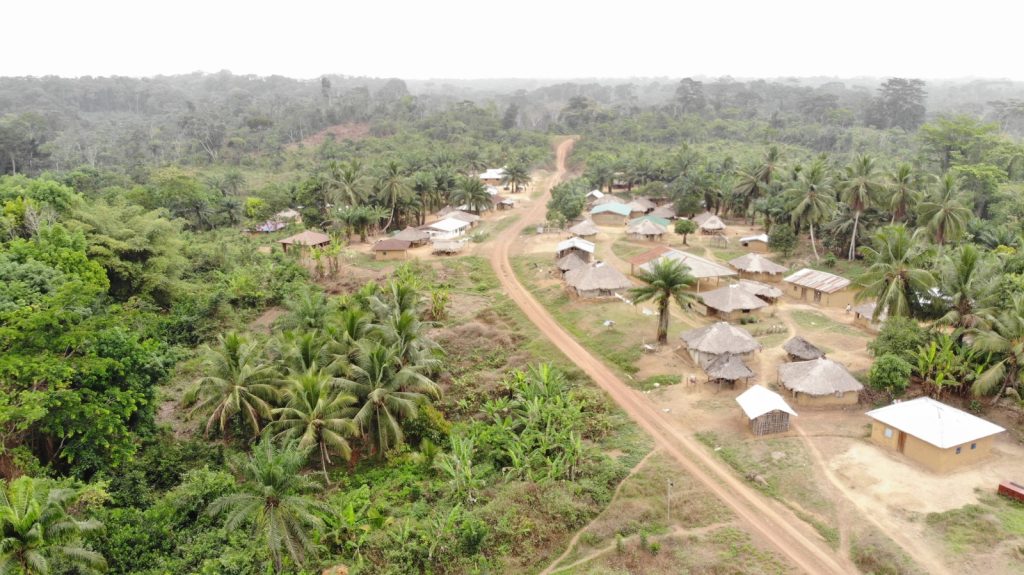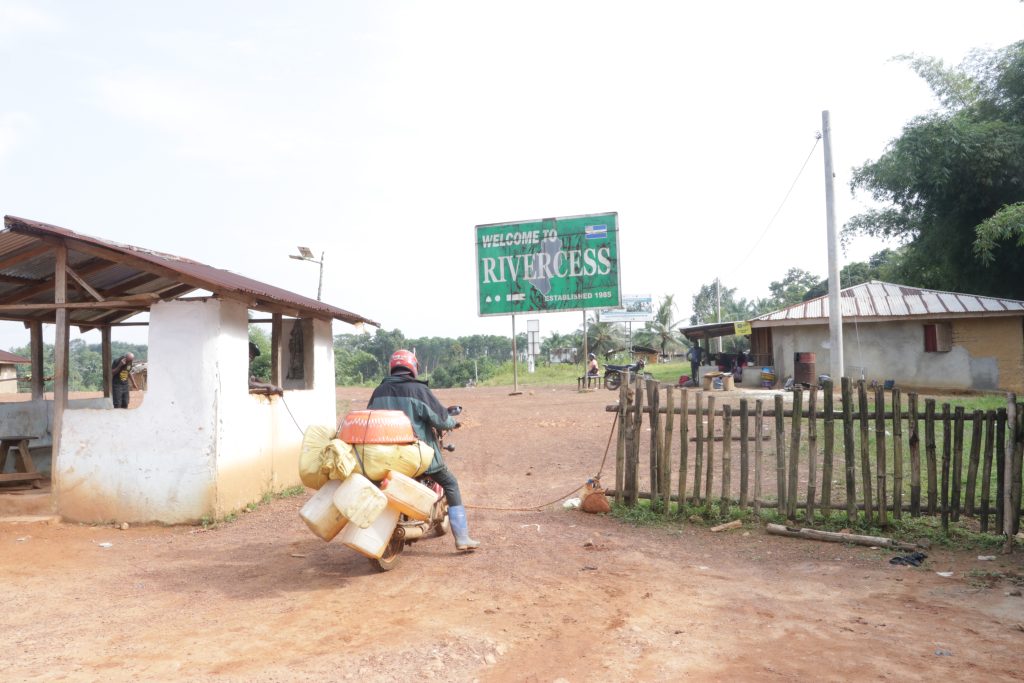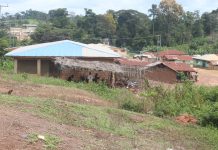Top: Clan Chief Mary Garpu of Dorbor receives the clan’s customary land deed. The DayLight/Harry Browne
By Harry Browne and Aaron Geezay
YARPAH TOWN – Several clans in River Cess recently received customary deeds, granting them the right to manage and benefit from lands left behind by their ancestors.
On December 10, 2024, the Liberia Land Authority(LLA) presented customary deeds to Gbarsaw, Dorbor, Ziadue, and Teekpeh Clans in River Cess County, formalizing the communities’ ownership.
Then 10 days later, the Siahn Clan in Central River Cess District and the Togba-Nyankun Clan in Fen River District received theirs.
“Today has become one of the happiest days of my life,” said Samuel Vonziah, chairman of the Gbarsaw Community Land Development Management Committee, fighting back tears.
“When you see me coming down with tears, it is tears of joy, tears of pain, the kind of struggle that we have been through, and other people who struggled with us in the past. All this represents the difficulties we underwent. As communities celebrate this historical moment, we hope for a new beginning that would improve their lives,” Vonziah added.
Edith Gbukpa, a women’s leader of Siahn, celebrated the milestone similarly. “In the past, our parents used to be caretakers of the land, but we are so happy today that we have right over our land.”
The latest issuance increases the number of communities with customary deeds to at least 27 from a list of 21 as of September last year, according to official records. Five more communities are poised to be issued customary deeds, while 30 have registered and conducted confirmatory surveys, representing over 1.3 million acres of land.
The six clans’ progress followed the completion of several processes that qualified the communities, including community self-identification, participatory mapping confirmatory survey, and. Before granting the property deeds, land authorities ensured all land disputes within the clans were amicably resolved.

Obtaining the deed is a break away from the old days.
In the past, communities struggled to get their deed. The right of customary people to own land in Liberia was only recognized in 2018, 171 years after independence. Historically, customary land rights were often overlooked and disregarded.
The Aborigines Law enacted in 1956 weakened the rights of Indigenous people by disregarding customary land rights, experts say. The move denied native people legal ownership of land without written deeds, emphasizing control and ownership by the state.
Consequently, this lack of recognition contributed to significant land disputes and conflicts over resources across Liberia, posing sufficient risk to Liberia’s peace and stability.
In response to the growing threat posed by land disputes, Liberia, backed by the international community, enacted the Land Rights Acts, which recognizes and protects customary land ownership.
Hailed home and abroad as a landmark achievement, the law recognizes customary land ownership, following decades of deprivation.
“Our land is for us now,” said Nancy Garpu, Clan Chief of Dorbor Clan. “It wasn’t for us at first. It was for the government but now the land is ours. So, I am happy that we have gotten our deed. When I go to my home, it is dancing that we will carry on there.”
The deeds now give communities the freedom to decide how to manage and benefit from the resources of the land, providing them with a window of opportunities to attract investment for local development.

“This is the time to lobby for companies. The reason why we struggled for the deed,” said Onesimus Charles, chairman of the Teekpeh Community Land Development and Management Committee. “I am confident that this deed would ensure the protection and promotion of our customary land.”
The Sustainable Development Institute (SDI), which supports Gbarsaw, Dorbor, Ziadue and Teekpeh, hailed the handing over of the deeds.
“We are grateful that we were able to educate our people on the processes leading to the acquisition of their deeds and awareness about their rights. This is a result of that engagement you see here today,” said Winston Siaker, a representative of the SDI. “It means we are graduating from the past, where people will no longer say women cannot own land but only boys children.”
Borbor Boeyon, River Cess County Land Administrator. Boeyon disclosed five other River Cess clans are in the process of obtaining their deeds. Boeyon added that many of River Cess’ 34 clans had started the deeding process but were at the boundary demarcation level.
“The land will now be under the clans’ protection and they are going to do what they can do,” Boeyon told The DayLight on the margins of the deeding ceremony in Yarpah Town. “Unlike before, the government will not just move in an area and say, ‘We are taking this portion of land from you.
“Today they have been set free.”





Facebook Comments